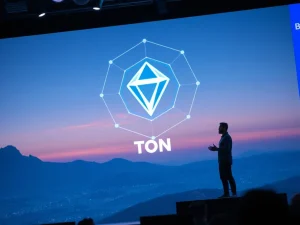OpenAI Atlas Browser Unlocks Revolutionary Agentic AI for Web Navigation

The digital landscape continues its rapid evolution. Now, a groundbreaking development from OpenAI promises to redefine how users interact with the internet. Imagine a browser that not only understands your requests but also proactively completes tasks for you. This is the promise of the new OpenAI Atlas browser, a powerful tool integrating advanced agentic AI directly into your web experience. For cryptocurrency enthusiasts, this innovation signals a new era for automated transactions and decentralized applications, hinting at a future where AI agents manage digital assets and execute smart contracts with unprecedented efficiency.
Introducing the Revolutionary OpenAI Atlas Browser
OpenAI, the creator of ChatGPT, has officially unveiled Atlas. This AI-powered browser represents a significant leap forward in web navigation. Currently available exclusively for MacOS users with a paid subscription, Atlas embeds sophisticated AI capabilities directly into the browsing experience. The platform introduces a suite of features designed to streamline online activities, offering a glimpse into the future of digital interaction.
Key features of the OpenAI Atlas browser include:
- Browser Memories: ChatGPT remembers context from sites users visit, enhancing personalized interactions.
- Agent Mode: This standout feature allows the browser to perform complex tasks autonomously.
- Automated Research: Atlas can analyze information and conduct research on the fly.
- Task Automation: It completes various tasks on users’ behalf, from opening tabs to clicking through processes.
Users can continue browsing while Atlas works in the background. This functionality creates a seamless and highly efficient online environment.
The Power of Agentic AI: Your In-Browser Personal Assistant
At the core of Atlas lies its innovative “agent mode.” This feature essentially integrates a personal assistant directly within the web browser. The system leverages agentic AI to understand user intent and execute multi-step actions autonomously. For example, a user could request the browser to plan a dinner party. The AI agent would then:
- Take a recipe.
- Search for stores stocking the necessary ingredients.
- Add items to a virtual shopping cart.
- Arrange for delivery, all without direct user intervention.
This level of automation transforms everyday online tasks. It shifts the paradigm from passive browsing to active, intelligent assistance. The browser becomes a proactive partner, anticipating needs and executing solutions efficiently.
Atlas AI agents can go shopping for you. Source: OpenAI
Ensuring Safety and Security with AI Agents
OpenAI has prioritized user safety and data security in the design of Atlas. The company understands the inherent risks associated with giving AI agents significant autonomy. Consequently, several robust safety features are built into the browser. These measures protect users from potential vulnerabilities and ensure responsible AI operation. The Atlas browser:
- Prevents running code directly within the browser environment.
- Blocks unauthorized file downloads.
- Disables the installation of unapproved extensions.
- Cannot access other applications or file systems on the user’s computer.
- Pauses before executing actions on sensitive sites, such as financial institutions, requiring explicit user confirmation.
These safeguards are crucial for building trust in emerging AI agents technology. They allow users to explore the benefits of automation without compromising their digital security.
The Future of Web Navigation: An Open Agentic Web
The launch of the OpenAI Atlas browser provides an early look into a future dominated by agentic AI. Industry leaders are increasingly discussing this vision. Frank Shaw, Microsoft’s chief communications officer, highlighted this trend earlier this year. He stated, “We’ve entered the era of AI agents.” This perspective suggests a fundamental shift in how people interact with the internet. The concept revolves around an “open agentic web.” In this environment, AI agents make decisions and perform tasks on behalf of users or organizations. This evolution promises more intuitive and efficient online experiences.
The integration of agentic AI could profoundly impact various sectors. Consider personalized education, automated customer service, and dynamic content creation. The potential for innovation remains vast. Furthermore, blockchain technology could supercharge these AI agents, providing immutable records and secure, decentralized execution environments. This convergence could pave the way for entirely new digital ecosystems.
AI Payments and Agentic Commerce: A Glimpse into Tomorrow
The implications of agentic AI extend significantly into the realm of finance and commerce. The concept of “agentic commerce” recently emerged as a central topic at the Fed’s Payment Innovation Conference. Prominent figures discussed the transformative potential of AI agents for autonomous payment systems. Cathie Wood of ARK Invest, Coinbase chief financial officer Alesia Haas, and Richard Widmann, Head of Strategy at Google Cloud, all lauded the virtues of these intelligent systems.
Imagine AI payments systems that autonomously manage budgets, optimize spending, and execute transactions based on predefined rules or real-time market conditions. Such systems could revolutionize personal finance and corporate treasury management. They could also enhance the efficiency and security of cross-border payments. The integration of blockchain with these AI payment agents could further ensure transparency and immutability. This synergy points towards a future where financial transactions are not just automated but also intelligent and self-optimizing. The advent of the OpenAI Atlas browser marks a pivotal step toward this intelligent, automated, and interconnected future.








